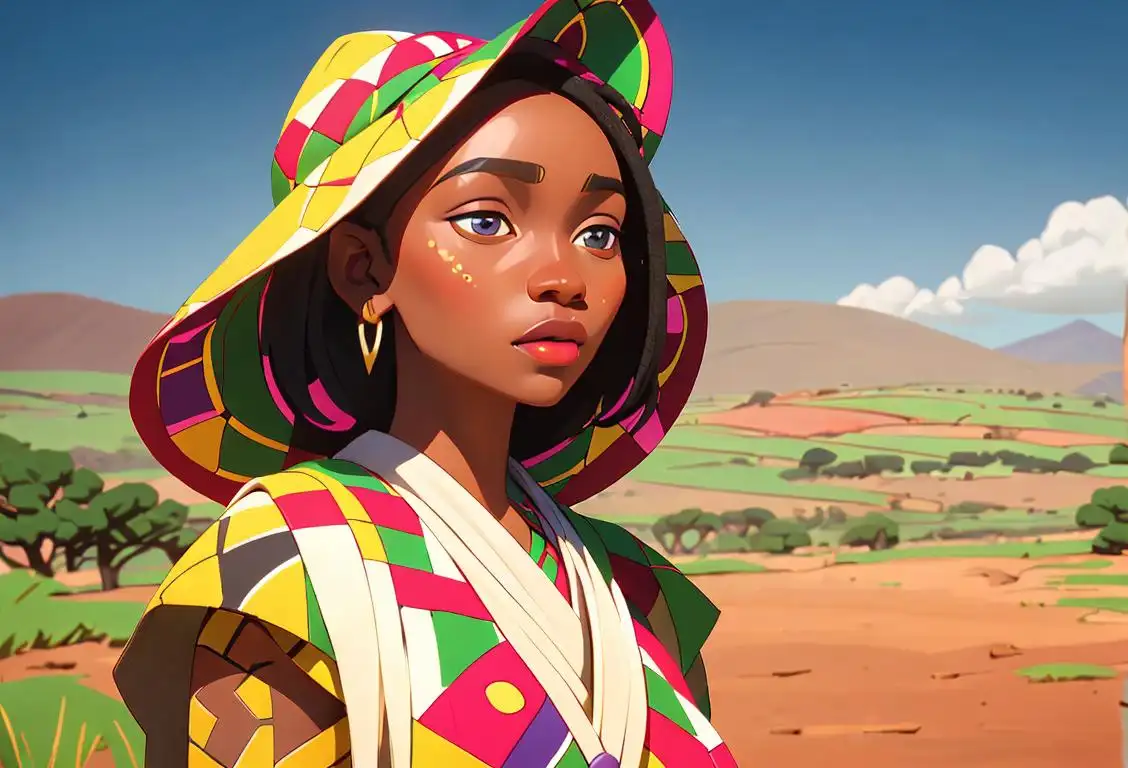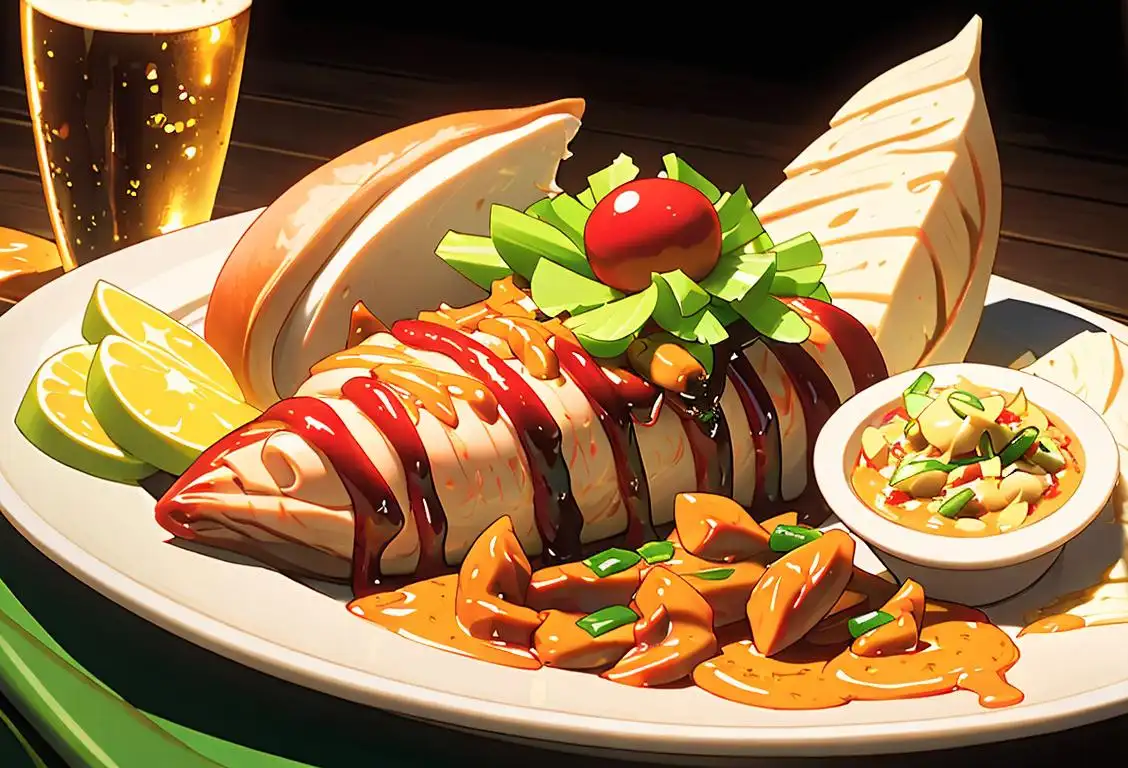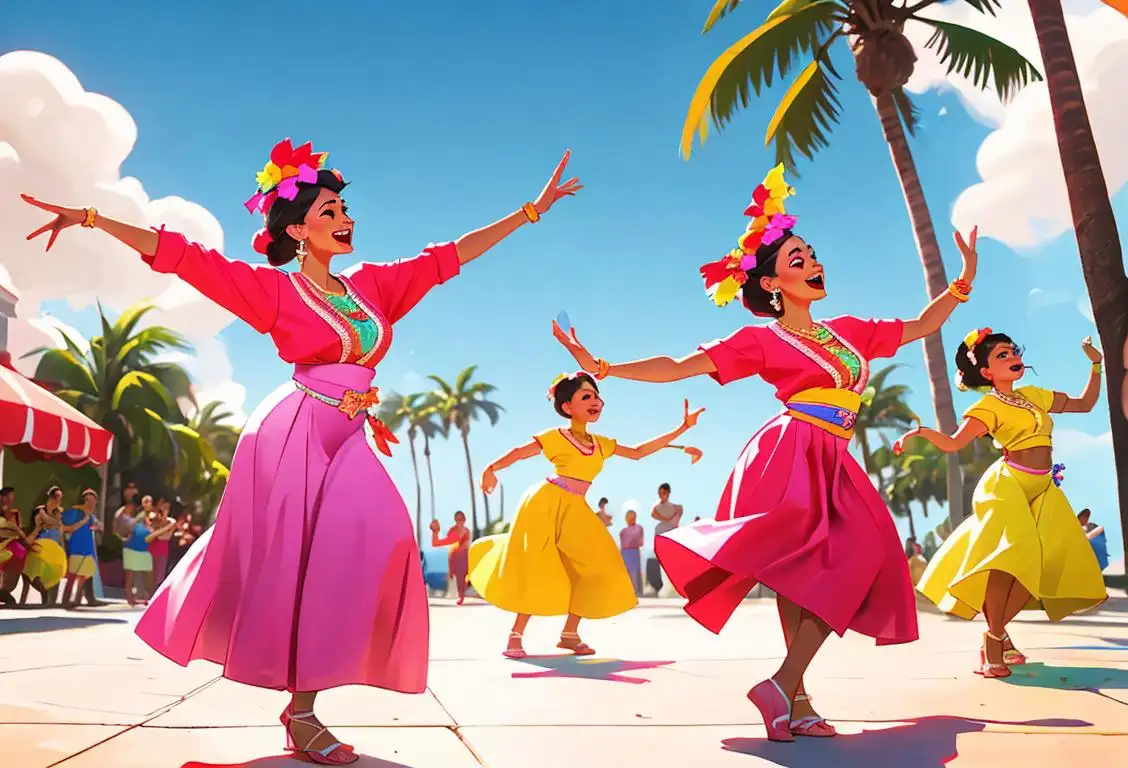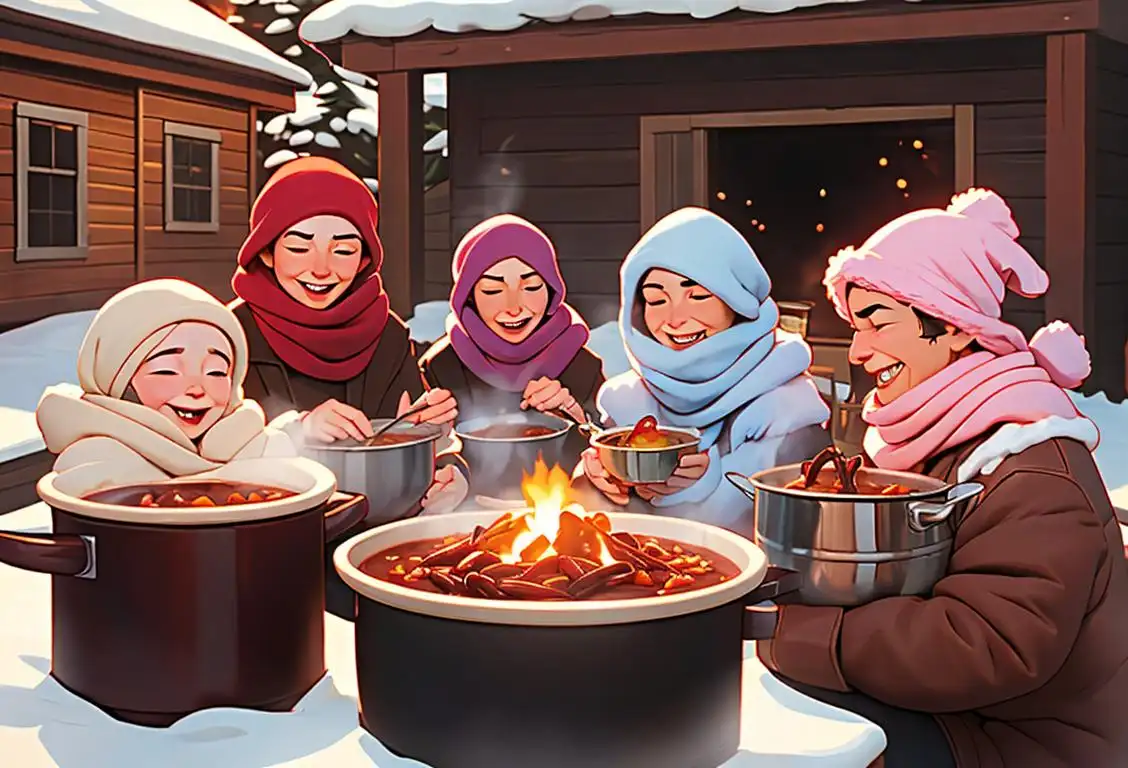National Puerto Rico Day
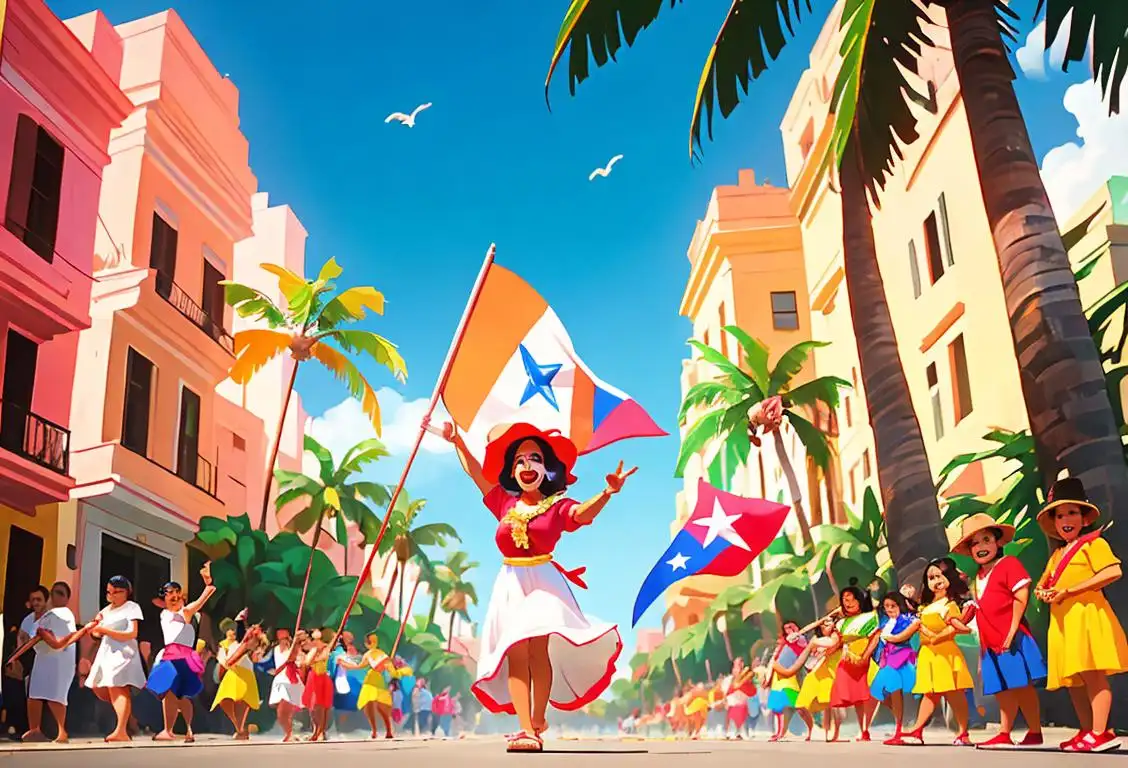
Ah, National Puerto Rico Day, a day full of lively celebrations, vibrant culture, and plenty of delicious food! This day is all about honoring the beautiful island of Puerto Rico and its rich history. So, grab your maracas and get ready to learn more about this festive occasion!
When is Puerto Rico Day?
It's national puerto rico day on the 9th June.
The Internet History of National Puerto Rico Day
National Puerto Rico Day is a special day that celebrates the heritage and contributions of Puerto Ricans in the United States. It's an opportunity to showcase the unique culture, traditions, and accomplishments of the Puerto Rican community.
The origins of National Puerto Rico Day can be traced back to the early 20th century when Puerto Ricans began migrating to the United States in large numbers. As the Puerto Rican population grew, so did the desire to celebrate their culture and promote unity among fellow Puerto Ricans.
The internet has played a significant role in spreading awareness and organizing events for National Puerto Rico Day. With the rise of social media and online platforms, it has become easier than ever for Puerto Ricans worldwide to connect, share stories, and plan celebrations.
Online communities, such as Puerto Rican cultural forums and social media groups, have become virtual gathering places where people can come together to express their pride and celebrate their heritage. These platforms also provide a space to share information about local events, parades, and festivals happening in different cities across the United States.
In recent years, hashtags such as #NationalPuertoRicoDay and #BoricuaPride have gained popularity on social media, allowing Puerto Ricans everywhere to join the conversation and share their love for their culture.
Celebrations and Traditions
On National Puerto Rico Day, various cities in the United States hold parades, concerts, and cultural events to commemorate the contributions of Puerto Ricans to American society. One of the most famous celebrations takes place in New York City, where the Puerto Rican Day Parade attracts thousands of participants and spectators each year.
During these festive gatherings, you can expect to see vibrant displays of Puerto Rican flags, traditional music, and mouthwatering plates of authentic Puerto Rican cuisine. From arroz con gandules to mofongo, the flavors of Puerto Rico take center stage, tantalizing taste buds and bringing smiles to everyone's faces.
Several organizations and businesses also host educational programs and workshops to promote awareness and understanding of Puerto Rican culture. These initiatives aim to preserve traditions and pass down cultural knowledge to future generations.
A Fun Fact About National Puerto Rico Day
Did you know that the Puerto Rican flag holds great symbolism? The flag, known as La Borinqueña, features five equal horizontal bands: three red and two white. The blue triangle on the left represents the Caribbean Sea, while the white star within it symbolizes Puerto Rico. Interestingly, the flag was designed by a group of Puerto Rican intellectuals living in the exiled community in New York back in 1892. Talk about a piece of history!
History behind the term 'Puerto Rico'
1493
Discovery by Christopher Columbus
In 1493, during his second voyage to the New World, Christopher Columbus arrived at the island of Puerto Rico. He named it 'San Juan Bautista' after St. John the Baptist. This marked the first European contact with the island.
1508
Spanish colonization
In 1508, Juan Ponce de León, a Spanish explorer, founded the first European settlement on the island. He named it 'Caparra' after a town in Spain. However, the settlement was later moved to a more strategic location and renamed 'San Juan,' which eventually became the capital of Puerto Rico.
1521
Becoming a Spanish territory
In 1521, Puerto Rico officially became a Spanish territory when it was declared a province of the Spanish Empire. The Spanish held control over the island for over 400 years, bringing their language, culture, and traditions to Puerto Rico.
1898
Transfer of ownership to the United States
In 1898, as a result of the Spanish-American War, Puerto Rico was ceded to the United States. Under the terms of the Treaty of Paris, Puerto Rico, along with Guam and the Philippines, became territories of the United States. This marked the beginning of Puerto Rico's status as a U.S. territory.
1917
Granting of U.S. citizenship
In 1917, the Jones-Shafroth Act was passed, granting U.S. citizenship to the people of Puerto Rico. This made Puerto Ricans citizens of the United States, although they do not have full voting rights in federal elections. Puerto Ricans can freely travel to the United States and have served in the U.S. military throughout history.
1952
Commonwealth status
In 1952, Puerto Rico adopted its current political status as a commonwealth associated with the United States. This status grants Puerto Rico a measure of self-governance, with its own constitution and elected government. However, Puerto Rico is still subject to U.S. federal laws and oversight, and its political status remains a topic of debate and discussion.
Did you know?
The Puerto Rican flag, known as La Borinqueña, was designed by a group of Puerto Rican intellectuals living in the exiled community in New York back in 1892.Tagged
food celebrations culture traditions musicFirst identified
10th June 2018Most mentioned on
9th June 2019Total mentions
43Other days
Puerto Rico Day
Xhosa Day
Acadien Day
Louisiana Day
Braai Day
Marlians Day
Austin Day
Rice Day
Puerto Rican Day
Chili Day
